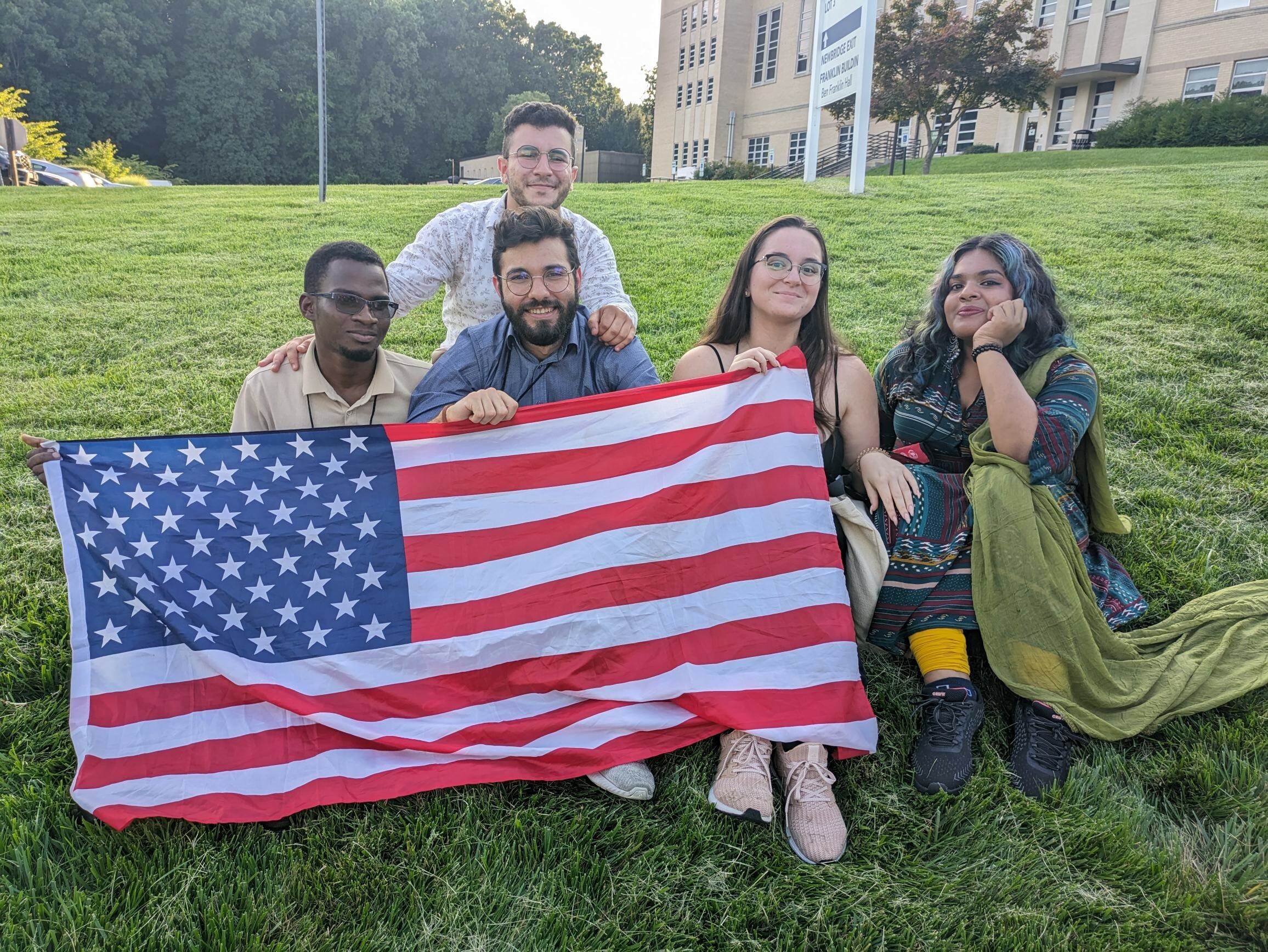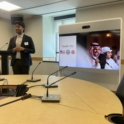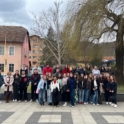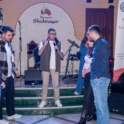Abdulaziz reflects on the highlights from serving as a mentor for CEW.
STORIES
Seven Reflections from Senior Alumni for Current Students
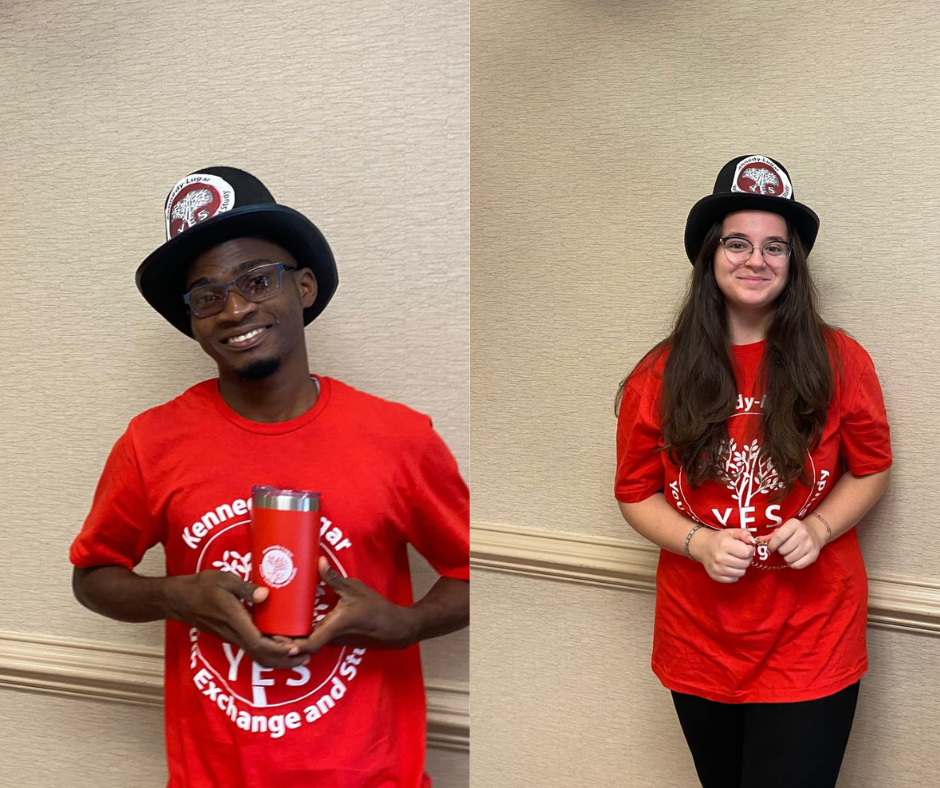
By Abdulshakur Abdilah (YES 2018-2019, Tanzania, placed by AYA/AIFS in Scio, NY) and Aleksis Sakta (YES 2018-2019, Albania, placed by PAX in Lehi, UT)
If we had to drive to each other, it would take six days non-stop driving to reach each other, yes that is 8,514.4 miles away. It would be very uncommon for us to meet, but through the YES Program we met three times - what a coincidence! We first met for our exchange year during Civic Education Week, then we met in 2022 to facilitate arrival orientations, and surprisingly we met again as senior alumni instructors in 2023. Each time we meet, it has been nothing but exciting, fruitful, fun, and educational memories. Often, it’s believed that working with the same people will be easy because you get used to the people you are working with, and it's hard to change your working colleagues but easily found common roots with the new alumni and succeeded to have another amazing unforgettable experience again this year in Washington D.C. as much as last year.
Teaching at arrival orientations for the second time taught us several things, from fellow exchange alumni and exchange students their staffs, and even the environment we are in, today, when reflecting to our memories we can say we are proud to discover the following:
1. Embrace Imposter Syndrome
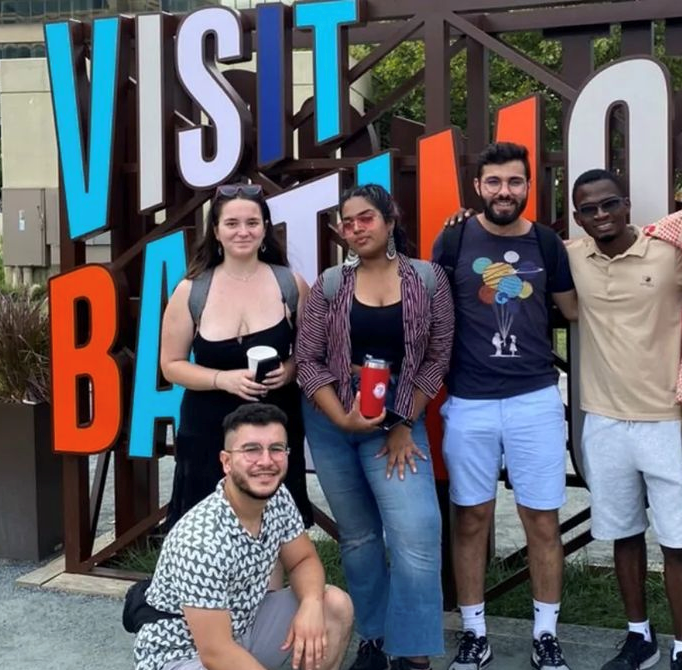
While working as instructors, we were given the professional development opportunity to be trained by Dr. Sam Potolicchio, a wonderful professor who has given speeches on leadership and communication in over 85 countries. Among other things, he invited us to 'embrace our imposter syndrome'. Imposter syndrome is the feeling of being inadequately prepared in a group of people that seem to have more knowledge and experience. This is a common feeling that way in a workplace or in a good university, but we sure remember feeling this as exchange students, when we were entering American homes and schools and learning the simplest customs of the people that had been living there forever. What Sam taught us was to embrace the feeling of being different and to look through our own arsenal of knowledge to see what we can do to add value to someone that we perceive is different to us. We applied this unknowingly during our exchange, when even though Americans had better English and knew the way around the huge school campus and how to eat baked potatoes.
But they had no idea about where Albania was or what language was spoken in Tanzania, which we taught them. We felt the same feelings when we were teaching the students for the first time last year along American teachers that had been doing this for years, but we battled it by remembering that only we know what it feels like to be a YES student and, with our fresh perspective and with being relatable to the students more than anyone, we were able to provide a smooth bridge between the students and teachers. Although at times it was intimidating, the notion of teaching about American culture alongside very experienced and prepared teachers who were American, embracing this feeling of intimidation and embracing the fact that we stood out helped us understand that our true power was, in fact, being foreign and being different. Our perspectives were unique, and they were able to share with the students invaluable things that only we could understand and transmit and we believe that all our students should feel the same about their perspective and their voices.
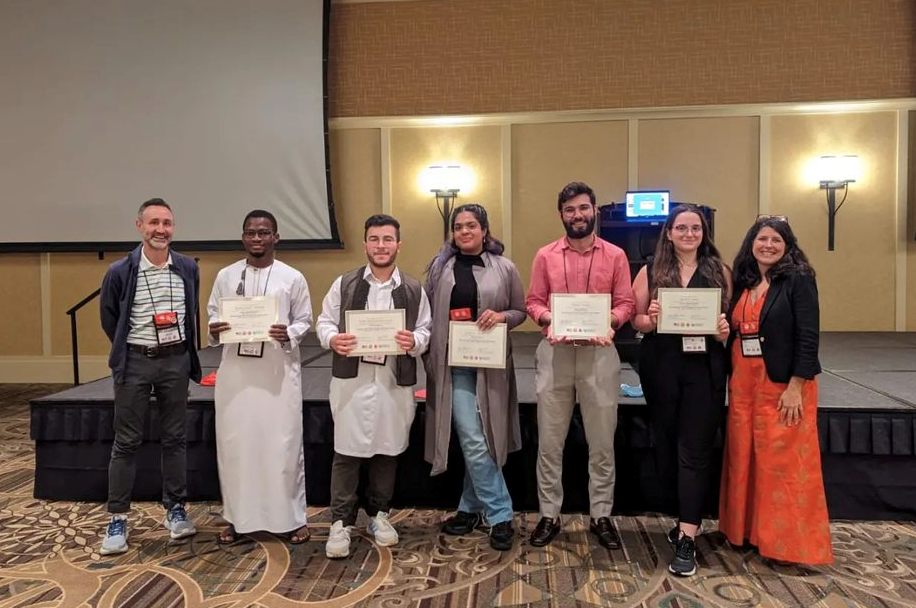
2. Improvise, Adapt, Overcome
When we came to the U.S. as students, we remember feeling such strong emotions as we heard our guest speakers and our group teachers giving us information and motivation and we didn't pay too much attention to what was going on in the background. As alumni instructors, we got to see firsthand just how much work goes into ensuring each individual student has a comfortable and successful orientation and gets to their host community safely. From the kind orientation venue staff who answered our students' every question about new foods, to the airport team and the State Department Officials that take time each week to meet with the students, it's hard not to feel special being chosen as part of YES.
From learning how to play the game ‘Apples to Apples’ to teach it to the Liberian students, to creating a short schedule for the students whose flights arrived later than expected and running both schedules simultaneously with different groups, we did our fair share of changes and adaptations at the last minute to ensure a successful orientation. Although it was our second time, there were new things out of our comfort zone. Through our YES experience, we have learned to be comfortable getting uncomfortable and making changes as needed to get to our desired results. This is a good lesson to learn because in life everything rarely does go according to plan, no matter how good the plan is. It's valuable in moments of change to stay calm, regroup and reroute, which we did and which we encourage our students to do.
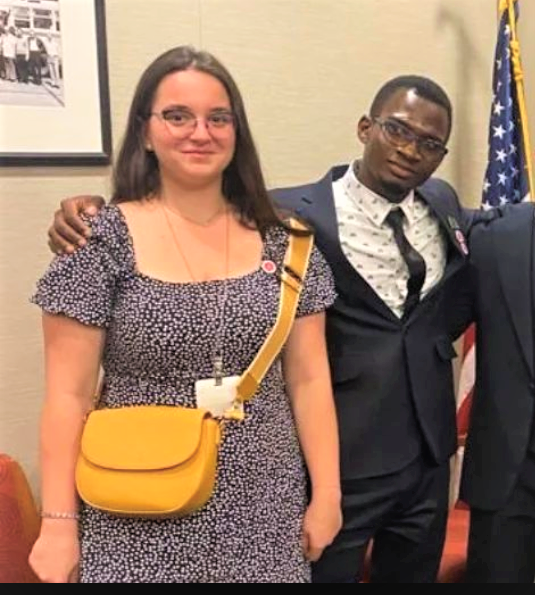
3. Hard Work Pays Off
During our exchange, we can both remember going through challenges and working through them. Whether it was new foods that we tried or working through differences of gender roles, or even keeping a grateful attitude when we were tired or sad or homesick, there were times when it took a lot of effort to remember what we stood for and why it was important to always put our best foot forward. As we spent the past two summers teaching students the tools and strategies to live with an American family and integrate into the society here, we got questions and concerns from students that made us think back to ourselves when we were in the kids' shoes. Sometimes we missed our family a lot. Sometimes the food tasted different, and people spoke too fast and sometimes we missed the school bus and God knows every now and then we would get so tired by the seventh period that English seemed like a completely new language, but we still did it.
Back home, it was challenging to integrate back into high school and to start university and to balance our education and friends and sports with YES alumni activities, but we still did it.
Here at the orientations, sometimes we were running around all day on little sleep trying to keep around 70 jet-lagged, teenage brains engaged and excited, but we still did it and that's why we are able to tell this story today. Life is full of waves but the best choice is to ride them, which is how you come out on top.
4. The Best Thing to Do is the One That You Like
Throughout Arrival Orientations we have been discovering the fact that we love what we do, from hanging out with students and teach them games, registering them, hearing their expectations and even facilitating sessions and repeatedly answering their questions, none of that made us regret our experience of orientations but rather helped us to improve our understanding of self, other people, and different things. We learned how to better communicate with people no matter where they are from, and what culture they come with, and we established a common ground with students, to give them friendly environment.
5. The Best Way to Learn is Through Experiences.
The best part at the beginning of every week of orientations was us trying to learn to at least say 'Hello' before students got to the site, we went even further and learned their flags and made posters to welcome them in their languages with their flags in, students are more than surprised to see these posters especially after long tiresome flights. This was the easiest time I have learned a language, because in less than 12 hours we get to practice it with native speakers. This shows we can easily learn things if we have something to practice and experience that particular thing.
6. The Impossible is Possible, You Just Haven't Done it Yet
We have found that, as we work on ourselves and take on new challenges, be it professionally or personally, our comfort zone grows. Things like talking to a U.S. Department of State Official or walking into the American Councils Office to interact with the staff that selected us when we were young seemed almost impossible when we were the age our YES Students are now. Talking in front of one hundred people and all of them being interested in what we have to say seemed like a dream. If you told us in 2018 that in 2023 we would be sitting confidently in a bus full of Pakistani exchange students, singing with them ‘Pasoori’ and other fun songs and leading them to the orientation site, or if you told us that hundreds of students from around the world would listen to us attentively as we taught them proper social media etiquette on exchange, we would have been in awe. An exchange year and two Orientations later, we can proudly say that we participated in and supported the program that changed our lives and the people that, 6 years ago, believed in us and our potential. We have sat down to speak with Department of State Officials and they ask us personally about our aspirations and accomplishments. We have become the people that we used to look up to and who knows what we will achieve next. And, if we were able to do this, who knows what our students will do, when they are in our place.
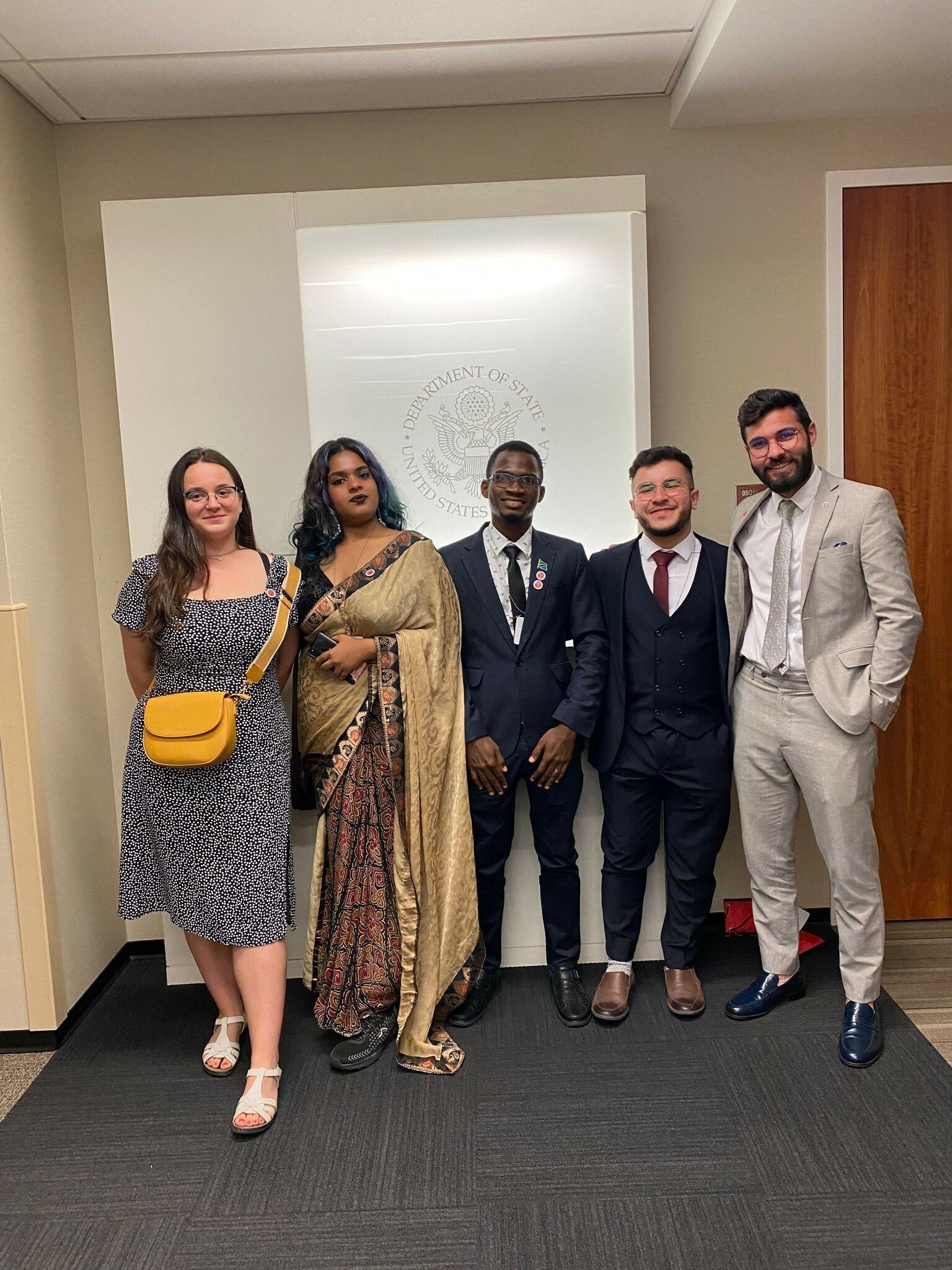
7. Experiences Turn into Stories
When we were on exchange and we did our best to accomplish our YES goals to gain ties, we did not think of how our story would look when told to hundreds of people. When we adapted, used the chain of communication and eased our way through our culture shock, we experienced things as they came and did the best to stay on top of difficulties. Through our hard work and through God's will, we ended up in front of hundreds of students who asked us questions like how we adapted to the differences between gender roles in America and in our country, how we bonded with our host families and how we managed to beat homesickness during Ramadan. As we told our stories of strategies like keeping an open mind, talking about our feelings and seeking help when needed, we realized that the things we had experienced had turned into lessons for our students to follow. Our lives were now our stories, which we had written. We invite YES students, YES alumni and anyone else who is reading to remember that the decisions you make today create the story you will tell tomorrow. Make it a good one!
The bond we have built with 2022 alumni instructors is unbreakable, and the one we made with 2023 alumni will last forever, these amazing alumni have taught us and gave us very unique and worth experiencing working environment, it never felt different to us to work with both teams of alumni, both teams provided a healthy, friendly, supportive, and positive working environment that we are sure that students we instructed got to learn and will have the best exchange years. We are expanding our thanks to the YES Program for this opportunity, our fellow Alumni, Mahdi, Taha, and Raisona for all the support they gave to us, and for being reliable alumni instructors. Additionally, we want to give thanks to all American Councils staff who made us feel like part of them, and everyone else who made our two years of teaching in Orientations better. We also wish that all the students, our FRIENDS, have successful exchange years ahead of them and the beautiful, wonderful, future they all deserve. We wait with excitement to see what our future holds, what stories we will write next. Stay tuned!
Stay tuned for more Alumni Instructor Stories in the coming days.
